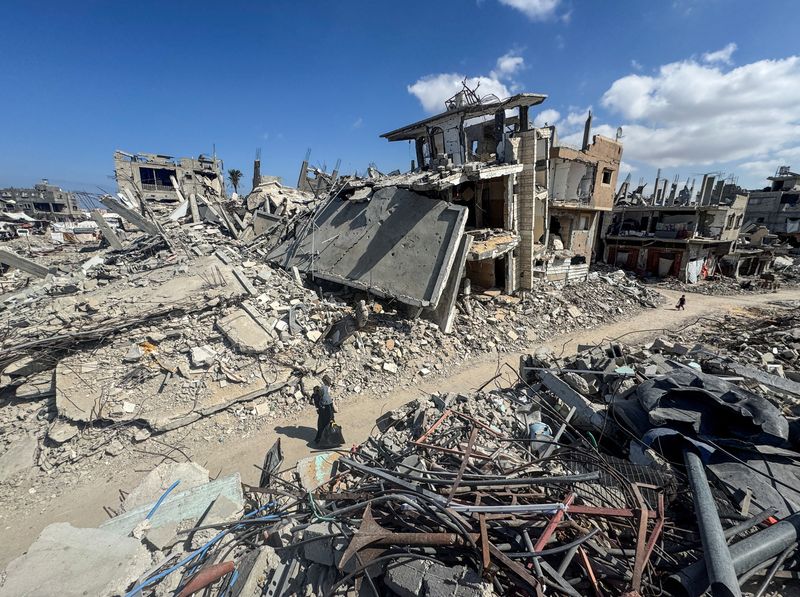Select Language

ZURICH (Reuters) - Unemployment in Gaza has soared to nearly 80% since the Israel-Hamas war erupted, with the devastated enclave's economy in almost total collapse, the International Labour Organization said on Thursday.
Economic output has shrunk by 85% since the conflict with Israel began a year ago, plunging almost the entire 2.3 million population into poverty, the United Nations agency said.
The conflict has caused "unprecedented and wide-ranging devastation on the labour market and the wider economy across the Occupied Palestinian Territory", the ILO said, referring to Gaza and the West Bank.
In the West Bank, the unemployment rate averaged 34.9% between October 2023 and the end of September 2024, while its economy has contracted by 21.7% compared with the previous 12 months, the ILO said.
Before the crisis, the unemployment rate in Gaza was 45.3% and 14% in the West Bank, according to the Geneva-based organisation.
Gazans either lost their jobs entirely or picked up informal and irregular work "primarily centred on the provision of essential goods and services," the ILO said.
Israel launched its offensive after Hamas-led gunmen attacked on Oct. 7, killing some 1,200 people and taking around 250 hostage, according to Israeli tallies.
Israel's campaign in response has killed more than 42,000 people, according to Gaza's health authorities.
Two-thirds of Gaza's pre-war structures - over 163,000 buildings - have been damaged or flattened, according to U.N. satellite data.
Israel says its operations are aimed at rooting out Hamas militants hiding in tunnels and among Gaza's civilian population.
The crisis has spilled into the West Bank, where Israeli barriers to movement of persons and goods, coupled with broader trade restrictions and supply-chain disruptions, have severely impacted the economy, the ILO said.
Israel says its actions in the West Bank have been necessary to counter Iranian-backed militant groups and to prevent harm to Israeli civilians.
"The impact of the war in the Gaza Strip has taken a toll far beyond loss of life, desperate humanitarian conditions and physical destruction," said ILO regional director for Arab states Ruba Jaradat.
"It has fundamentally altered the socio-economic landscape of Gaza, while also severely impacting the West Bank’s economy and labour market. The impact will be felt for generations to come."

